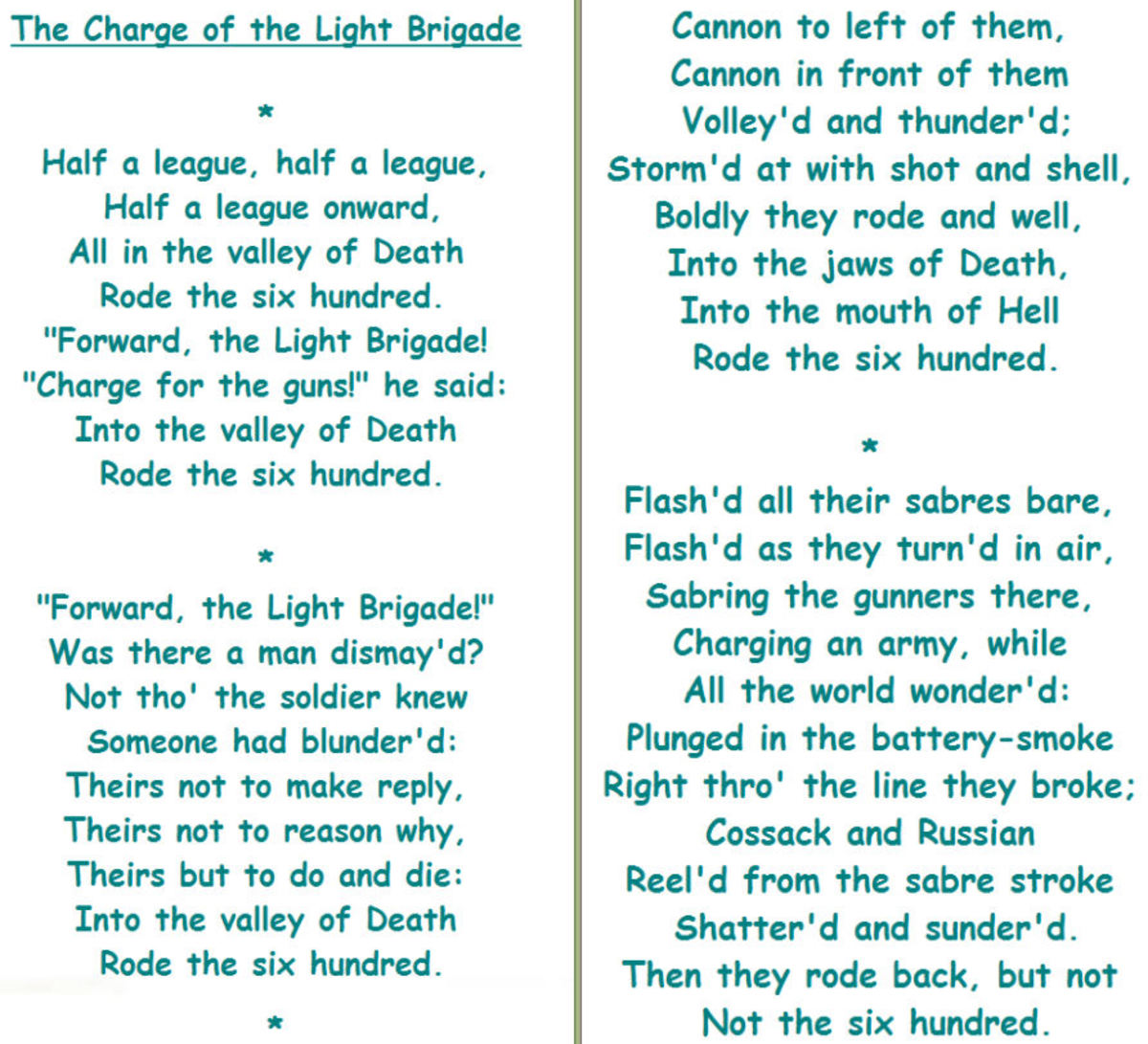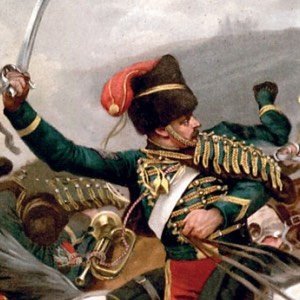


Listen Now Through the valley of death…again They make wassail - an ancient alcoholic punch - and mince meat pies as they talk about the Pagan rituals, Medieval feasts and Victorian traditions that dictate what we put on our Christmas dinner tables. Incredibly, they reached the Russian lines and began to attack the gunners.įood historian, Annie Gray joins Dan in his kitchen to cook up some delicious Christmas fare from ages past. British commander Lord Cardigan lead from the front of the charge as the horsemen were pummelled from three sides, suffering heavy losses. Louis Nolan, the man who had received the orders, had just realised his mistake when he was killed by a Russian shell, and around him his fellow cavalrymen charged onwards. Instead of questioning these suicidal instructions, the Light Brigade started to gallop towards the enemy position. However, in one of the most infamous military blunders in history, the horsemen were given the wrong orders and began to charge a heavily defended Russian position well protected by large guns. This was a task well suited to light cavalry, who rode smaller faster horses and were suited to chasing lightly armed enemy troops. At this point in the battle the brigade of British Light Cavalry were ordered to charge Russian gunners who were trying to clear the captured Ottoman positions. The Russian attacks initially overwhelmed Ottoman defences but were then rebuffed by a “thin red line” of Scottish infantry and a counterattack from the heavy cavalry brigade. Determined to avoid Sevastopol’s capture, the Russians regrouped and attacked at the battle of Balaclava on 25 October. In September 1854 allied troops landed in the Russian-held Crimean peninsula and defeated the more technologically backward Russian armies at Alma, before marching on the strategically important port of Sevastopol. Watch Now A military blunder of epic proportions Tennyson pays Nolan and soldiers like him a nameless, deathless tribute with his monumental poem.In this fascinating discussion with Dan Snow, Cambridge University’s Dr Kate Fleet takes us on a tour of the hugely successful and long lasting empire, and questions how we should view its legacy in the modern era. Newsman William Russell, Nolan's good friend, honored the brigade's bravery in the "London Times," a tribute that inspired Tennyson. Tennyson also indirectly honors the one soldier who could be called Balaclava's hero, Captain Nolan, who brought Lord Raglan's charging orders to Lord Lucan. The line, "Theirs not to reason why," includes the poem's readers. The meaning of "The Charge of the Light Brigade" is to honor the cavalrymen who fell, rather than explore the reasons for the event. Back from the mouth of hell." Tennyson ends with a command to the reader to feel triumphant pride: "Honour the charge they made! / Honour the Light Brigade, / Noble six hundred!" His tone is exultant there is no hint of irony. Charging an army, while / all the world wonder'd." Tennyson rewrites history as "Cossack and Russian reel'd from the sabre-stroke" and the Light Brigade seems to return victorious: "They that had fought so well.

Tennyson immediately shifts from blaming the commanders to commending the fixed and unalterable obedience of the brigade: "Theirs not to reason why / Theirs but to do and die." This commendation sets the tone of the entire work.įrom the second stanza on, the poem is an exaltation of bravery, depicting the men with "sabres bare.

Tennyson, writing six weeks after the fact, names no names to blame in his paean to bravery, saying only "Someone had blunder'd." He disregards the negligence of such commanding figures as Lord Raglan and Lord Lucan, who mutually confirmed the order to attack without knowledge of the extent of the Russian forces. into the mouth of hell." William Russell of the "London Times" caught Tennyson's fervor, speaking of the spectacle's "pride and splendor." No Blame Game Tennyson confirms this with the line "boldly they rode as well. They are thus aligned with King David, going into spiritual darkness by faith. Certainly Tennyson is unsparing in his praise: the Light Brigade rides into the "Valley of Death," an allusion to the biblical "valley of the Shadow" in Psalm 23. Tennyson's work baffles historian Corelli Barnett, who wonders why he sentimentalizes such a monumental military blunder.


 0 kommentar(er)
0 kommentar(er)
